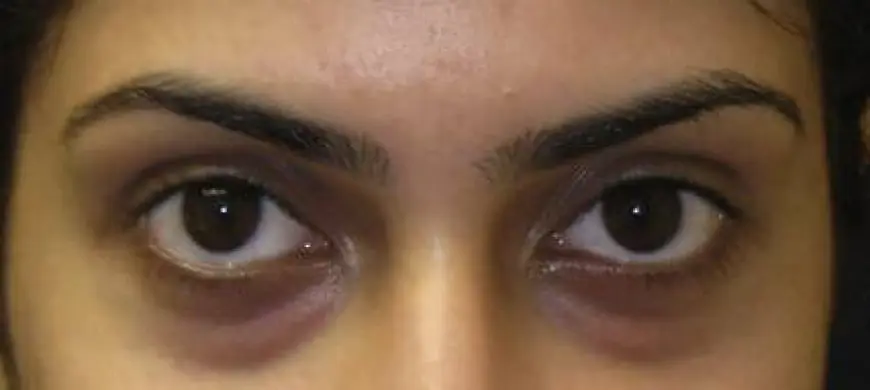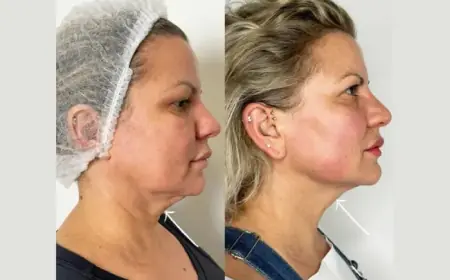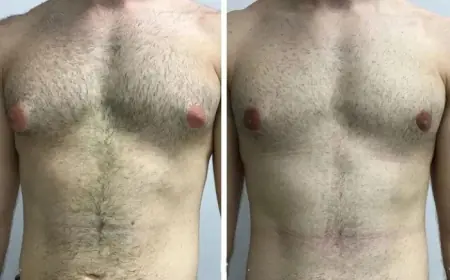How Do Dark Circles Treatments Work?
Get a fresh facial look with our Dark Circles Treatment in Dubai at Dynamic Clinic. we offer surgical and non-surgical Under Eye Treatments.

Dark circles under the eyes are a common cosmetic concern that can make individuals appear tired or older than they are. Fortunately, modern dermatology and aesthetic medicine offer advanced Dark Circles Treatment options to effectively reduce their appearance. These treatments work by targeting the underlying causes, such as thinning skin, hyperpigmentation, poor circulation, or volume loss. From laser therapies to injectable fillers, medical professionals utilize scientifically backed techniques to rejuvenate the under-eye area. If you're seeking the best solutions, explore the latest advancements in Dark Circles Treatment in Dubai, where cutting-edge technology meets expert care.
Understanding the Causes of Dark Circles
Before diving into treatments, it's essential to understand why dark circles form. Several factors contribute to their development:
-
Genetics – Hereditary thin skin or pigmentation issues can lead to persistent dark circles.
-
Aging – Loss of collagen and fat beneath the eyes makes blood vessels more visible.
-
Lifestyle Factors – Lack of sleep, stress, and dehydration can worsen their appearance.
-
Sun Exposure – UV rays increase melanin production, leading to pigmentation.
-
Allergies & Nasal Congestion – These can dilate blood vessels, creating a shadowy effect.
By identifying the root cause, doctors can recommend the most suitable treatment.
Medical Treatments for Dark Circles
Laser Therapy
Laser treatments are highly effective for dark circles caused by pigmentation or visible blood vessels. Different types of lasers, such as Q-switched Nd:YAG or Fractional CO2 lasers, break down melanin deposits and stimulate collagen production. The heat energy from lasers tightens the skin, reducing darkness and improving texture.
Chemical Peels
Dermatologists use mild to moderate chemical peels containing glycolic acid, retinol, or kojic acid to exfoliate the top skin layers. This process lightens pigmentation and promotes fresh, even-toned skin growth.
Dermal Fillers
Hyaluronic acid-based fillers like Restylane or Juvederm are injected to restore lost volume under the eyes. By plumping hollow areas, they reduce shadowing and create a smoother transition between the cheek and under-eye region.
PRP (Platelet-Rich Plasma) Therapy
PRP therapy uses the patient’s own blood platelets to stimulate collagen and elastin production. When injected into the under-eye area, it improves skin thickness and reduces discoloration naturally.
Microneedling with RF (Radiofrequency)
This advanced treatment combines tiny needles with radiofrequency energy to boost collagen remodeling. It tightens loose skin and reduces pigmentation, offering long-lasting results.
Carboxytherapy
A non-invasive procedure where medical-grade CO2 gas is injected to increase blood flow and oxygen supply. This helps break down pigmentation and rejuvenate the under-eye area.
Benefits of Professional Dark Circles Treatment
Opting for medical-grade treatments ensures:
-
Precision Targeting – Doctors address specific causes (pigmentation, volume loss, etc.) with tailored solutions.
-
Minimal Downtime – Most procedures are non-surgical, allowing quick recovery.
-
Natural-Looking Enhancement – Treatments restore a refreshed, youthful appearance without drastic changes.
Choosing the Right Treatment for You
Since dark circles stem from various factors, a consultation with a dermatologist or aesthetic specialist is crucial. They assess skin type, severity, and medical history to recommend the best approach. Combining treatments (e.g., lasers with fillers) may yield optimal results for stubborn cases.
Final Thoughts
Dark circles don’t have to be a permanent concern. With advancements in cosmetic dermatology, multiple Dark Circles Treatment options can effectively restore a bright, youthful gaze. For those seeking world-class care, Dark Circles Treatment offers innovative solutions backed by expert practitioners.
What's Your Reaction?
 Like
0
Like
0
 Dislike
0
Dislike
0
 Love
0
Love
0
 Funny
0
Funny
0
 Angry
0
Angry
0
 Sad
0
Sad
0
 Wow
0
Wow
0


















































